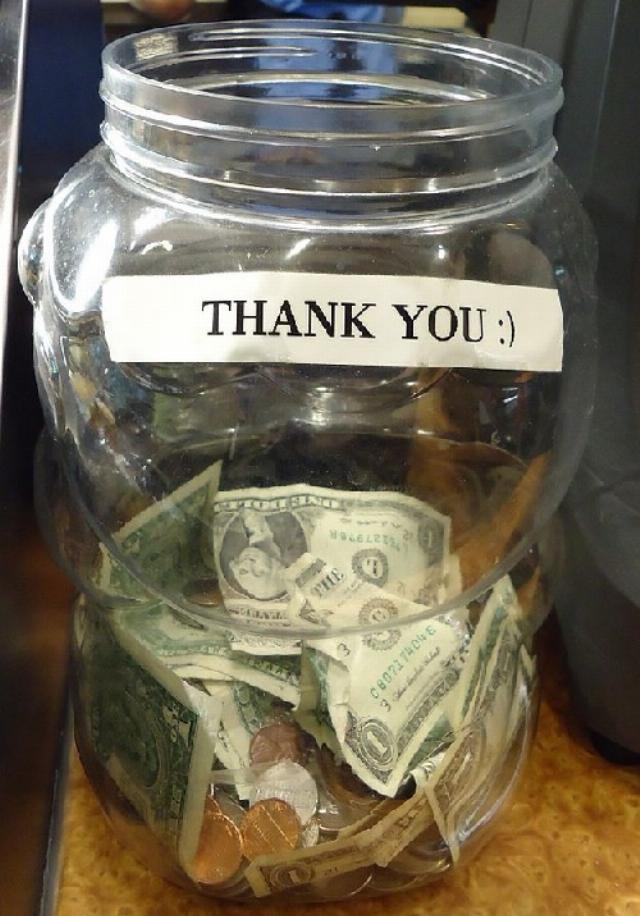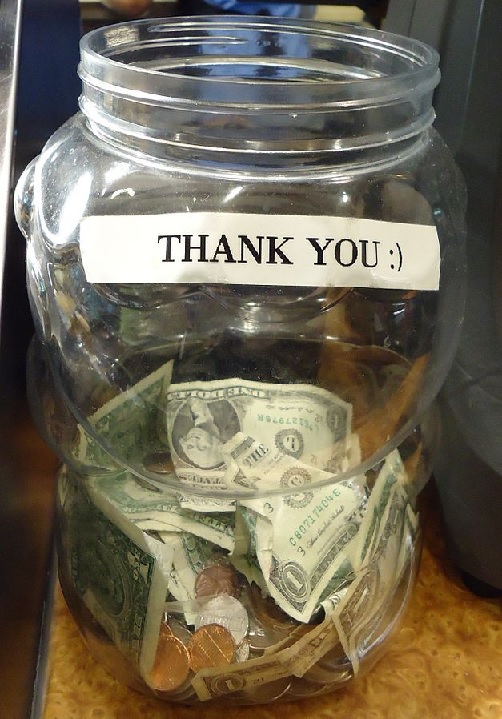

Tomwsulcer
To tax tips or not sounds simple: yes or no. However, if we say 'yes,' several other issues arise, such as it's not clear how many of these workers will realize any economic benefit.To tax or not to tax tips is currently a hot topic. To tax tips or not sounds simple: yes or no. However, if we say ‘yes,’ several other issues arise, such as it’s not clear how many of these workers will realize any economic benefit.
Michael Davis asks in the Hill: “If you tip the person who pours your coffee at Starbucks, why not tip the person who fills up your oil at the Quick Change place?” Davis is asking, “Where do we draw the line on tipping? Who do we tip and not tip?”
Davis also states that the entire tipping concept creates great animosity between workers like waitstaff and bartenders who are in front of customers and who actually receive the tips and the hostesses and kitchen staff who aren’t in front of the customers at the moment the tips are handed out. These employees deserve a share of the tips as well. Davis is asking, “How do we make certain tips are fairly and adequately distributed?”
The idea of no tax on tips made and makes for great politics, especially in the swing state of Nevada. According to the Bureau of Labor Statistics, Nevada has the highest concentration of waiters and waitresses by state in the country. Its popularity, however, is not just in Nevada. A recent Ipsos survey found that almost 75% of Americans like the idea. Steve Rosenthal of the Urban-Brookings Tax Policy Center tried to inject some humor into this situation when he wrote, “…let’s hope what happens in Vegas stays in Vegas.”
The ‘no tax on tips’ idea is not new. Representative Ron Paul (R-TX) proposed a similar idea during his 2012 campaign for the GOP presidential nomination. His idea disappeared along with his candidacy. However, this idea keeps turning up like a bad penny. And voters seem okay with that fact. Senator Ted Cruz, (R-TX), introduced the ‘No Tax on Tips Act’ in July with the support of Democrat senators Catherine Cortez Masto and J<img alt captext="Tomwsulcer” class=”post-image-right” src=”https://conservativenewsbriefing.com/wp-content/uploads/2024/12/do-we-tax-tips.jpg” width=”400″>acky Rosen, (both D-NV), and the Culinary Workers Union Local 226. A similar bill introduced by Representative Byron Donalds (R-FL) is also making its way through the House of Representatives.
The view of tips by Mike Rowe, ‘The Dirty Jobs’ guy, captures the dilemma spoken about above: “…It’s a really big help for the average worker in the hospitality industry… There are a lot of hard working people who don’t work for tips who are probably looking at this and saying, ‘Hey, what about my calluses, what about my take-home pay?’ …I would be remiss if I didn’t wonder aloud about the unintended consequences. What do you do if you run a restaurant and all your employees suddenly get what amounts to a raise… what do you do a year later when you talk about their salary, if it impacts their base? I just think there’s a bigger conversation to be had, and it has to do with a civilized society when the whole notion of a tip morphs from a gratitude into an expectation. How is the consumer supposed to think about it? …We don’t have a rational approach to tipping in this country….”
Further unintended consequences of the absence of a rational approach to tipping include:
- Tips constitute a substantial amount of income for many workers, and exempting that income could lead to a reduction in tax revenue
- Overall restaurant wages could stagnate
- Consumer backlash could reduce tip amounts
- Not taxing tips could decrease worker contributions to Social Security
- No taxes on tips may not ease negative customer sentiment around tipping
- Not taxing tips favors tipped workers over non-tipped workers
Conversely, no tax on tips could have the following benefits for employers and employees:
- Tipped workers would keep more of their money
- Restaurant owners could reduce administrative work and potentially save on payroll tax payments
- Tax-free tips could reduce the restaurant labor shortage by increasing interest in tipped restaurant work
From an income tax perspective, if exempting only tips (as opposed to social security benefits as well) from income tax is the proposal, it’s really not worth consideration, since most service workers pay little or no income taxes (people who make less than $50,000 per year pay less than 2.5 percent of income tax). Only 43% of U.S. adults say they worked in a job where they received tips.
About the animosity issue, consider, for example, a grocery store worker who makes $30,000 annually and a restaurant server who makes $10,000 in hourly wages and $20,000 in tips. Despite making the same income, the grocery store worker would pay more taxes. That’s crystallizes the issue: people in similar total income circumstances are treated differently. People who don’t receive tips are going to say, ‘Well, why not us, too?’
Bottom Line: ‘No tax on tips’ sounds good at first blush. However, further examination uncovers some not-so-good sounding issues that cannot be avoided. How do we make certain those issues are addressed?
In the interest of complete information disclosure, I have, while working for fifty years at several jobs from mechanic and service station attendant (both noble jobs) to university professor and consultant, never received a tip. Nor have I ever held any animus toward those who have and do receive tips.
Image: Tomwsulcer





